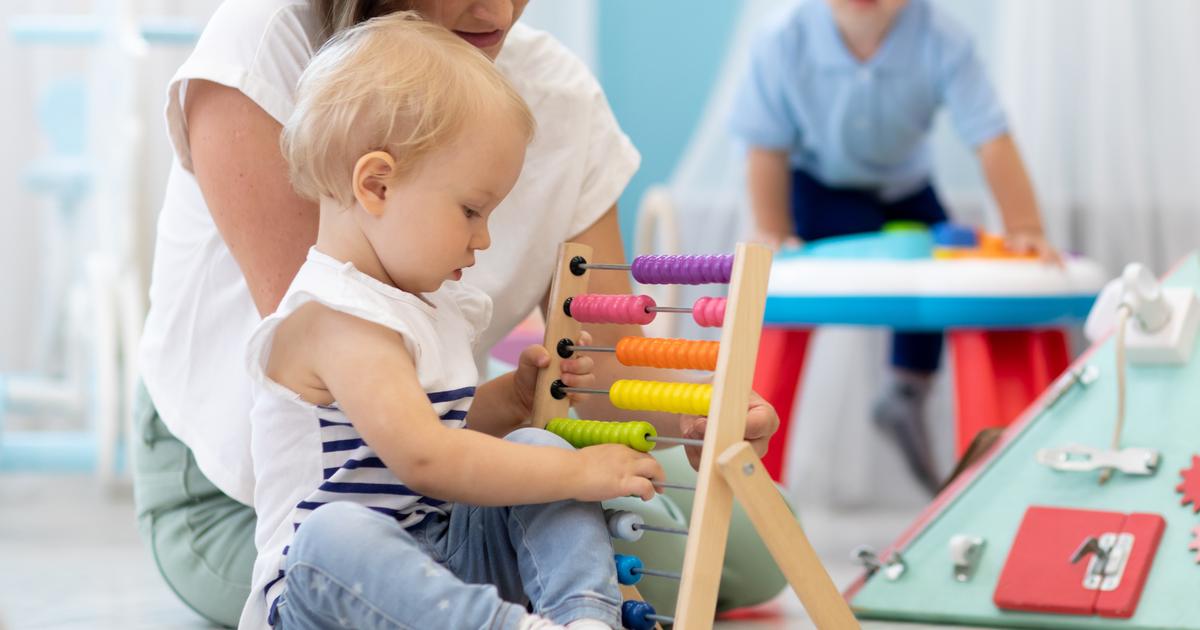Ethnic minorities living in Hong Kong often face great difficulties in learning Chinese even if they are born and raised in Hong Kong due to their lack of Chinese context. This not only affects their expression, pursuit of dreams or career development, but also fails to fully integrate into society.
Pakistani-born Mohammad Nayeam and his son Mohammad Hussain Zachary faced many difficulties in learning Chinese.
When my son came to live in Hong Kong, he didn't know Cantonese at all. In addition to being difficult to communicate with his family, he also had emotional problems because he couldn't express himself properly through the language. Fortunately, the kindergarten he was studying in participated in the "Jockey Club Friendship Learning Chinese" program (hereinafter referred to as the "Program"). ), greatly improving the Chinese and Cantonese proficiency of the Bu Bojian family.
Inability to communicate feeling down
His father, Bubba Kin, is of mixed-race Pakistani and Hong Kong. He speaks fluent Cantonese, but does not know how to read and write Chinese.
His youngest son, Bu Ziyou, moved to Chongqing with his grandmother when he was 9 months old, and did not return to Hong Kong until 2016 to further his studies.
At the time, 2-year-old Bu Ziyou only knew Chongqing dialect, which not only seriously affected his life, but also had problems communicating with his father.
"He doesn't understand a word of Chinese, he can't express or understand it, and he becomes very irritable. We mostly rely on sign language to communicate. For example, when he wants to go to the bathroom, he will use his fingers to indicate what he wants. I can only guess him a lot. The meaning of the word.” Father Bu Baijian initially taught his son Chinese through TV programs and books, but his Chinese reading and writing skills were limited, and he only understood relatively simple words such as “I”, “you” and “he”, and everything was powerless. .
Half a year later, my son went to kindergarten, and his language barrier caused emotional and behavioral problems. "He often cried and didn't want to go to school. Because he couldn't understand and couldn't speak clearly, his personality became self-centered and asked others to accommodate him." , The son resists Chinese and does not want to learn.
Bilingual textbooks for parent-child learning
Fortunately, the kindergarten where Bu Ziyou is studying has participated in the "Jockey Club Friendship Learning Chinese" program, so that the whole family can benefit.
It is planned to specially produce flashcards and books covering different life themes, such as daily necessities in supermarkets, basic etiquette, etc.
There are different life tasks and worksheets every week, so that school children can cultivate interest and gradually learn some basic words, strokes and word meanings.
The plan also arranges cultural experience activities, such as arranging parents and children to go to a teahouse to learn about the culture of drinking tea with "one cup and two pieces", visit supermarkets, stationery stores, etc., so that they can "learn and use" Cantonese.
The worksheets provided by the project include Urdu, English or Cantonese Pinyin to assist in teaching Cantonese words such as building blocks and dumplings.
Bubojian said with a smile that he really enjoyed the process of participating in the activity, which not only allowed him to apply the Chinese he learned to his life, but also allowed them to spend parent-child time together.
After my son went through the tea drinking activity, he was able to point out shrimp dumplings and siu mai.
"One year after participating in the project, my son did not understand a single Chinese word at first, but gradually improved. He can speak complete sentences and no longer resists learning Chinese. I never thought that my son would have such a change, and I am really happy. "My son will take the initiative to ask questions when he encounters words he does not understand. He has become more cheerful, and is willing to communicate and share with the people around him. He has also begun to integrate into the learning of mainstream schools and meet local Chinese friends.
Through the planned teaching materials and activities, Bu Bojian learns from the side and improves his Chinese ability.
"There is English pinyin on the Chinese character card. I can learn by myself and then teach my son. My Chinese has also improved. I can read all the Chinese texts that my son reads in Primary 1, and I can also teach him." Bu Bojian pointed out , The primary school curriculum in Hong Kong is mostly taught in Chinese. The bilingual teaching materials in the plan are just convenient for parents to teach at home. Even if their children encounter difficulties in class, they can ask their parents for advice when they go home.
He described this feature as very important. Otherwise, parents cannot help with teaching and can only rely on teachers. The difficulties in children's learning will inevitably gradually pile up, which will not only affect their academic performance, but also cause psychological pressure.
Learn Chinese well to end the vicious circle
Chow Wai-suan, Project Manager (Social Work) of the Jockey Club Friendship Learning Chinese, pointed out that many non-Chinese-speaking students were unable to enter English secondary schools due to their poor Chinese proficiency, which affected their academic performance. However, when they entered Chinese secondary schools, language barriers would only continue to affect Their academic performance will make it even more difficult for them to go to school and find employment in the future, forming a vicious circle.
For non-Chinese speaking parents, the language barrier also makes it difficult for them to communicate with school teachers.
The specially designed teaching materials of the project, adding elements such as cultural response, not only increase the learning motivation of non-Chinese speaking parents and young children, but also allow parents to teach their children Chinese at home and improve each other's Chinese proficiency at the same time. "Many ethnic minorities, especially families, Housewives lack the opportunity to learn Chinese, and the plan encourages them to try to learn, so that they understand the importance of participating in teaching and how to teach children Chinese through the living environment, and children are also good partners for them to learn Chinese.”
After the improvement of Chinese proficiency, the connection between home, school and community also improved. "Some non-Chinese-speaking parents do not know how to communicate with the school due to language barriers, even though they care about their children, and the school teachers do not know how to share the school situation with them. When parents have Chinese proficiency With the improvement, they will be more willing to go to the campus to collaborate with teachers, such as participating in school volunteer activities, and the communication with Chinese parents will increase, and the chances of using Chinese will also increase.”
Adhering to the past experience, it plans to support kindergartens with the "Culturally Responsive Teaching Benchmark" in the new stage starting this year. The goal is to enhance the Chinese language learning and social-emotional development of non-Chinese speaking minority students and Chinese students, so as to achieve a smoother kindergarten for them. articulate.
The plan hopes to support 42,000 kindergarten students, including 5,100 ethnic minority non-Chinese speaking students and their families, by 2026.
*Information provided by "Jianbu Life"







